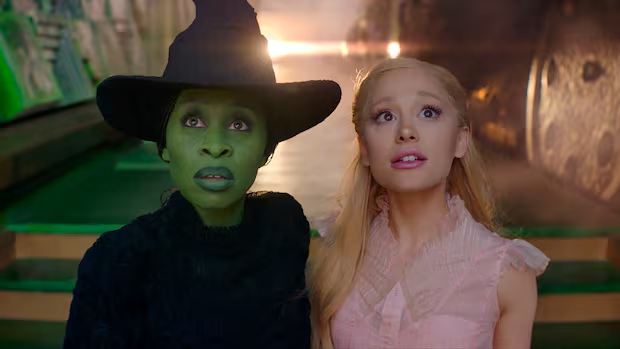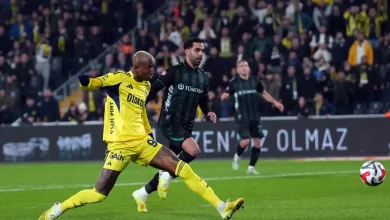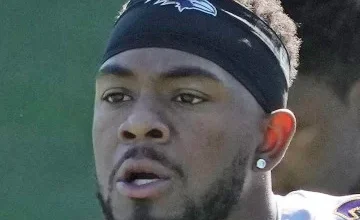Wicked: For Good brings nostalgia, parasocial relationships and political commentary to the big screen

Listen to this article
Estimated 7 minutes
The audio version of this article is generated by text-to-speech, a technology based on artificial intelligence.
Wicked fans have been patiently waiting for the release of the second and final part of the film. Today, Wicked: For Good finally comes to theatres to wrap up The Wizard of Oz prequel.
Last year, Wicked’s first part received critical and popular praise for adapting the musical for the screen. But the intense real-life friendship between the main actors, Ariana Grande (Glinda the Good) and Cynthia Erivo (Elphaba, Wicked Witch of the West), has created even more excitement around the second part.
But does Wicked: For Good deliver? Today on Commotion, host Elamin Abdelmahmoud reviews part two of the film with culture critics Kathleen Newman-Bremang, Sarah-Tai Black and Syrus Marcus Ware.
We’ve included some highlights below, edited for length and clarity. For the full discussion, including the Michelle Obama hair controversy and why Mariah Carey Christmas came early, listen and follow Commotion with Elamin Abdelmahmoud on your favourite podcast player.
WATCH | Today’s episode on YouTube:
Elamin: Kathleen, how do you feel about Wicked: For Good?
Kathleen: You know I’m a crier, right? You know that I love Wicked deep in my soul. So I was a mess throughout this movie. I did love it. I do understand that people who say it’s not as strong as the first one, famously act two of the musical is a bit weaker than act one. But at the end of the day, Wicked is about Elphaba and Glinda’s friendship. And it’s about two girls who grew together while figuring themselves out, while figuring out what it means to be good and loyal and take care of your community — what it means to love, to do good, how to benefit everyone and not just yourself.
If Wicked part one is Elphaba’s coming-of-age, Wicked: For Good is Glinda’s redemption. If you, like me, are Elphaba’s number one stan and you are still mad at Glinda for accusing Elphaba for “flying off the handle” when she was just doing the right thing, if you’re still mad at Glinda for “groveling in submission to feed her own ambition,” you might have a hard time watching her rise as this arbiter of all things good. But that’s why Wicked works, I think. Its political commentary might be clumsy at times, and watered down so much from its source material, but it is about how well-meaning moderates act in service of their own selfishness over the greater good. It’s about fighting back against fascism, and Glinda learns all of this and changes her ways and Ariana Grande plays that growth so beautifully. Cynthia Erivo is unreal in this. I think that [director] Jon M. Chu, all he had to do with this cast is not mess it up, and he didn’t. I think that if you love Wicked, you’re going to love it.
Elamin: You get to this place, Sarah-Tai, where the reviews for part two, For Good, are kind of mixed. However, critics do seem to agree on the thing that Kathleen just mentioned, the idea that Cynthia Erivo and Ariana Grande have this beautiful chemistry that you get to see on the screen. Tell me about how you felt about their performances together as a pairing.
Sarah-Tai: I will say, going to the advanced V.I.P. screening, I was surrounded by super fans like Kathleen, and it was such an anthropological experience seeing them react to things. People were crying, people were laughing, people are laughing at, people are laughing with. And so I was sitting there trying to understand, as someone who is not a Wicked fan, who hasn’t read the book or the musical and just knows the basic premise, I’m an average Wicked layman. I was trying to figure out how they’re enjoying this. And I could tell that they could really enjoy it. I don’t mean that in a mean way! What is the enjoyment and how is it working for them? That’s what I’m interested in as a critic.
I can tell that Cynthia and Ariana’s performances were landing for them, unlike other tonal things in the film that they were all laughing at. I feel like they’re having a don’t-meet-your-idols moment. But I do feel that Cynthia Erivo is definitely the strongest of the cast in both parts, but especially in the second part. And you can also really see in this parasocial but also realistic way that because these two films were filmed at the same time, you can see that tender, sweet, cloying and then uncomfortable co-dependent thing between Cynthia and Ariana that we’ve seen from them on the press tour. You see it develop on screen and you’re kind of like, “The impact of your relationship is not being translated into a complexity of story, but it’s still there.” And it’s this weird kind of push-pull between real feelings and acting feelings and what we’re thinking [that] they’re thinking and all of that. It was a very anthropological experience. I’ll say that.
Elamin: Syrus, I think one of the big challenges of adapting a musical like Wicked is that people who love the musical, they have high expectations: “This is the thing that I go to this musical for, I’d like to see that on the screen.” And those things can be sometimes lost when you adapt something like that to a movie. Do you feel like Wicked and Wicked: For Good were able to adapt the things that work with the musical into the movie?
Syrus: I think the thing that people loved about the musical are these big power moments where they get to sing their heart out. And we get a couple of those moments in both of the films. So you’ll be able to just jump in and, “If you care to find me, look to the Western sky,” while you’re in the shower. So we do definitely get those moments.
I read the book, I didn’t see the musical originally. So I was thinking of this translation from the book. Whenever you have something that takes a complex story and divides it into two parts, you’re already getting into some dangerous territory. It’s thin ice because it can be hard to keep that momentum going across both films.
I’m old school, I was interested in the yellow brick road. I wanted to see what happened with the tornado. I wanted to see what happened with some of the early basics of how that part of the story is adapted in this larger behind-the-scenes of what’s actually happening. I’m not sure that I was blown away in the way that I expected after having read the books.
You can listen to the full discussion from today’s show on CBC Listen or on our podcast, Commotion with Elamin Abdelmahmoud, available wherever you get your podcasts.
Panel produced by Ty Callender.





